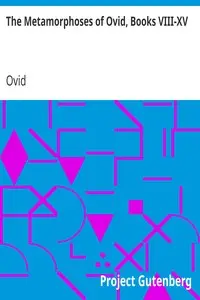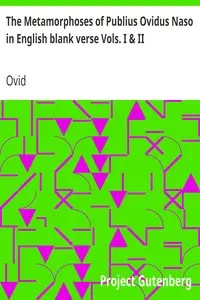"Remedia Amoris; or, The Remedy of Love" by Ovid is a poem crafted long ago that acts like a self-help book for the broken-hearted. Think of it like a follow-up to another of Ovid's books, but instead of giving advice on how to find love, it tells you how to get over it when it goes wrong. The author shares tips and tricks for getting over someone, from avoiding them to keeping busy, using stories from mythology to show how others dealt with love troubles. Through funny lines and striking images, the poem gives hope that you can mend a broken heart by changing the way you think about love and the person you once cared for.

Remedia Amoris; or, The Remedy of Love Literally Translated into English Prose, with Copious Notes
By Ovid
Discover ancient wisdom offering a playful yet practical guide to healing from love’s wounds and reclaiming control over one's heart.
Summary
About the AuthorPublius Ovidius Naso, known in English as Ovid, was a Roman poet who lived during the reign of Augustus. He was a younger contemporary of Virgil and Horace, with whom he is often ranked as one of the three canonical poets of Latin literature. The Imperial scholar Quintilian considered him the last of the Latin love elegists. Although Ovid enjoyed enormous popularity during his lifetime, the emperor Augustus exiled him to Tomis, the capital of the newly-organised province of Moesia, on the Black Sea, where he remained for the last nine or ten years of his life. Ovid himself attributed his banishment to a "poem and a mistake", but his reluctance to disclose specifics has resulted in much speculation among scholars.
Publius Ovidius Naso, known in English as Ovid, was a Roman poet who lived during the reign of Augustus. He was a younger contemporary of Virgil and Horace, with whom he is often ranked as one of the three canonical poets of Latin literature. The Imperial scholar Quintilian considered him the last of the Latin love elegists. Although Ovid enjoyed enormous popularity during his lifetime, the emperor Augustus exiled him to Tomis, the capital of the newly-organised province of Moesia, on the Black Sea, where he remained for the last nine or ten years of his life. Ovid himself attributed his banishment to a "poem and a mistake", but his reluctance to disclose specifics has resulted in much speculation among scholars.















